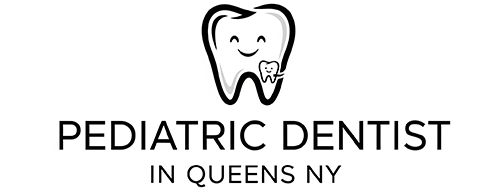I’ve been digging into AI dental apps that parents are using for their children, and what I found is both impressive and concerning.
Let’s cut through the marketing hype and look at what these apps actually do—and whether you should trust them with your child’s oral health.
What AI Dental Apps Actually Promise Parents
Right now, there are dozens of AI-powered dental apps targeting parents with young children.
Here’s what they claim to offer:
- Instant cavity detection from smartphone photos
- Caries risk assessment based on diet and hygiene habits
- Personalized oral health education for your specific child
- Early intervention recommendations before problems get worse
Sounds brilliant, doesn’t it?
The most talked-about app is AICaries, developed by researchers at the University of Rochester.
It’s designed specifically for parents to photograph their children’s teeth and get AI-powered cavity detection at home.
The Hard Numbers: What Actually Works
AICaries Performance Data (2022 Study):
- 78.6% of parent-taken photos were good enough quality for AI analysis
- System Usability Scale score: 78.4/100 (considered “excellent acceptance”)
- Parents could complete cavity risk assessments in 3-15 minutes
- 82.6% of front teeth photos were diagnostically useful
Broader AI Dental App Research (2025):
- AI dental apps show 41.5% to 98.6% accuracy for cavity detection (massive variation)
- Mean sensitivity: 76%, specificity: 91%
- ChatGPT scored highest for clinical accuracy and clarity when answering parent dental questions
“Little Lovely Dentist” Behavior Management App:
- 86.67% of children showed improved behavior after using the app
- Anxiety reduction was statistically significant compared to traditional tell-show-do methods
Success Stories That Give Parents Hope
Real Parent Testimonials from Research Studies:
“The app is very convenient to use, a lot of information regarding the risk factors, a lot of videos, helps to improve the oral health. So, in my opinion, it’s a really good app.”
“I can use it instead of calling my dentist, it’ll tell you if there’s a cavity or something, I really think a lot of people benefit from that.”
“I felt like it was very easy for parents to use and also the kids enjoyed using it as well. So, it was something that we enjoy together.”
Clinical Success:
A 2024 study found that using the “Brush DJ” mobile app significantly improved children’s oral hygiene habits and made tooth brushing a regular behavior.
Another study showed that 97% of children aged 4-8 were more cooperative during dental visits after using smartphone apps compared to traditional methods.
The Problems Parents Don’t See Coming
Here’s where things get murky.
Quality Control Issues:
- Only 5 out of 13 pediatric dental apps scored well enough to be considered “acceptable” quality
- Many apps scored poorly on information accuracy—the most critical component for safety
- No regulatory oversight for most consumer dental apps
Photo Quality Challenges:
- Parents struggled more with posterior teeth photos (back teeth)—only 20% could complete this task without challenges
- Lighting, angle, and child cooperation significantly impact AI accuracy
- Mixed dentition (baby teeth + permanent teeth) confuses many AI systems
False Sense of Security:
- Apps that show “no cavities detected” might give parents false confidence
- Delayed professional care because “the app said everything was fine”
- Early-stage cavities often missed by photo-based AI systems
What Pediatric Dentists Actually Think
Dr. Deepika Kapoor (2025) found that while AI platforms like ChatGPT performed well answering parent questions, there were “statistically significant differences” in clinical accuracy between different AI systems.
Professional Consensus:
- AI apps useful for education and risk assessment
- Dangerous as primary diagnostic tools
- Should supplement, not replace professional dental care
- Photo quality limitations make remote diagnosis unreliable for many conditions
One pediatric dentist told me: “Parents come in with app screenshots asking why my diagnosis is different. These apps are creating confusion, not clarity.”
The Ethical Minefield
Data Privacy Concerns:
- Children can’t consent to their dental data being collected
- Facial photos and health information stored by private companies
- Long-term data retention policies unclear for most apps
- Third-party data sharing often buried in terms of service
Algorithm Bias:
- Most AI training data comes from certain demographic groups
- Underrepresented populations may get less accurate results
- Socioeconomic factors not always considered in risk assessments
Reddit Parents Are Cautiously Optimistic
Pro-App Parents:
- “My daughter loves the dental games—made her first visit so much easier”
- “The risk assessment helped me realize we needed to change her diet”
- “Having photos to show the dentist saved us time at the appointment”
Skeptical Parents:
- “App said ‘no cavities’ but dentist found three. Never trusting AI again”
- “Too many apps want access to camera and personal information”
- “I’d rather pay for a real dental checkup than rely on my phone”
Smart Guidelines for Parents
DO Use AI Dental Apps For:
- Educational games to reduce dental anxiety
- Oral hygiene tracking and habit formation
- Risk assessment to understand cavity risk factors
- Preparation before professional visits
DON’T Use AI Dental Apps For:
- Primary cavity diagnosis
- Treatment decisions without professional consultation
- Emergency dental situations
- Replacing regular checkups
RED FLAGS:
- Apps that guarantee diagnostic accuracy
- Apps that recommend specific treatments
- Apps without clear privacy policies
- Apps that suggest skipping professional care
Questions Every Parent Should Ask
Before Downloading:
- Who developed this app? (University research vs. commercial company)
- What data does it collect from my child?
- How long is the data stored and who can access it?
- What are the app’s accuracy limitations?
When Using:
- How do I know if the photo quality is good enough?
- What should I do if the app conflicts with professional advice?
- When should I ignore the app and see a dentist immediately?
The 2025 Reality Check
What’s Real:
- AI dental apps can effectively reduce child anxiety about dental visits
- Risk assessment tools help parents understand cavity prevention
- Educational components genuinely improve oral hygiene habits
- Photo documentation can be useful for professional consultations
What’s Hype:
- Claims about diagnostic accuracy rivaling professional exams
- Suggestions that apps can replace regular dental visits
- “Instant cavity detection” from smartphone photos
- One-size-fits-all recommendations for diverse populations
My Bottom Line
Should parents trust AI dental apps for their kids?
For education, anxiety management, and risk awareness? Absolutely.
For cavity diagnosis and treatment decisions? Absolutely not.
The most successful approach I’ve seen: parents using apps to prepare children for dental visits, track oral hygiene habits, and understand risk factors—then discussing everything with a real pediatric dentist.
As one parent in a study put it perfectly: "It's a really good prevention tool, especially for those who have limited access to dental care."
That’s exactly right. Prevention tool, not replacement tool.
Should parents trust AI dental apps for their kids? Yes, but only as educational and preparatory tools—never as replacements for professional pediatric dental care.
Sources:
- AICaries Smartphone App Usability Study, 2022
- AI-Powered Pediatric Dental Advice Comparison, 2025
- Mobile Dental Apps for Pediatric Behavior Management, 2025
- Effectiveness of Dental Apps in Anxiety Management, 2017
- AI Accuracy in Dental Caries Detection Review, 2024

Mary – Queens Pediatric Dental Resource Manager. I’m a dental health researcher and parent advocate based in Queens, NY. After struggling to find reliable pediatric dental information during my own child’s dental emergency, I created this resource to help other Queens families navigate their children’s oral health needs.
I curate evidence-based information from leading pediatric dental organizations, peer-reviewed research, and trusted dental health experts. While I’m not a dentist, I’m committed to providing accurate, practical guidance that helps parents make informed decisions.
All content is thoroughly researched and includes proper medical disclaimers directing families to consult qualified pediatric dentists for their children’s specific needs.
